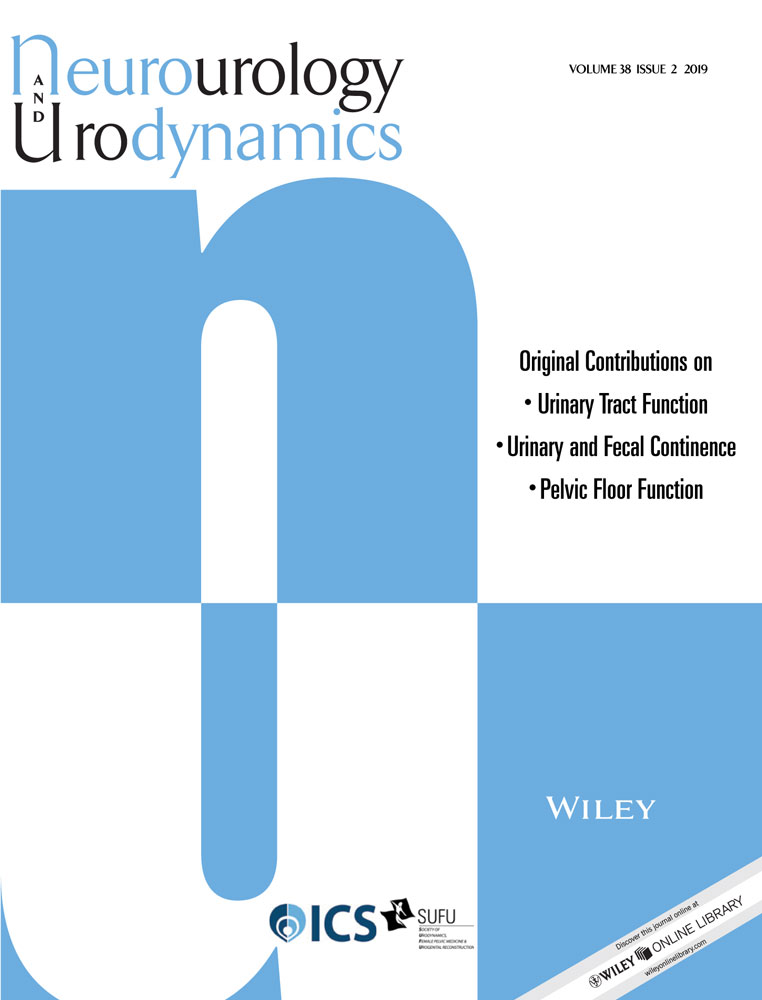Stress-induced autonomic dysregulation of mitochondrial function in the rat urothelium
Abstract
Aim
Chronic stress exacerbates the symptoms of most pain disorders including interstitial cystitis/bladder pain syndrome (IC/BPS). Abnormalities in urothelial cells (UTC) occur in this debilitating bladder condition. The sequence of events that might link stress (presumably through increased sympathetic nervous system-SNS activity) to urothelial dysfunction are unknown. Since autonomic dysregulation, mitochondrial dysfunction, and oxidative stress all occur in chronic pain, we investigated whether chronic psychological stress initiated a cascade linking these three dysfunctions.
Methods
Adult female Wistar Kyoto rats were exposed to 10 days of water avoidance stress (WAS). Bladders were then harvested for Western blot and single cell imaging in UTC cultures.
Results
UTC from WAS rats exhibited depolarized mitochondria membrane potential (Ψm ∼30% more depolarized compared to control), activated AMPK and altered UT mitochondria bioenergetics. Expression of the fusion protein mitofusion-2 (MFN-2) was upregulated in the mucosa, suggesting mitochondrial structural changes consistent with altered cellular metabolism. Intracellular calcium levels were elevated in cultured WAS UTC, consistent with impaired cellular function. Stimulation of cultured UTC with alpha-adrenergic (α-AR) receptor agonists increased reactive oxidative species (ROS) production, suggesting a direct action of SNS activity on UTC. Treatment of rats with guanethidine to block SNS activity prevented most of WAS-induced changes.
Conclusions
Chronic stress results in persistent sympathetically mediated effects that alter UTC mitochondrial function. This may impact the urothelial barrier and signaling, which contributes to bladder dysfunction and pain. This is the first demonstration, to our knowledge, of a potential autonomic mechanism directly linking stress to mitochondrial dysfunction.




